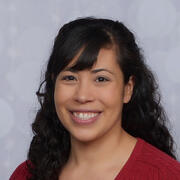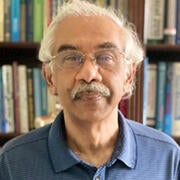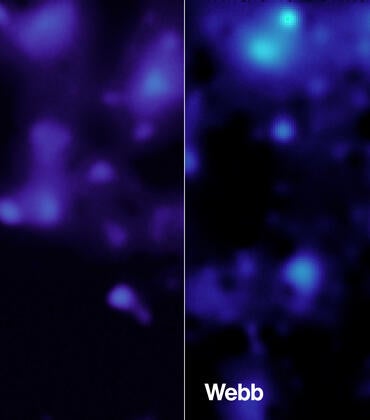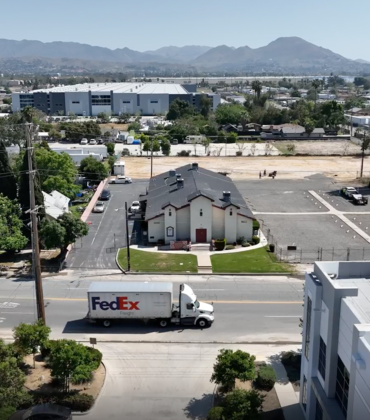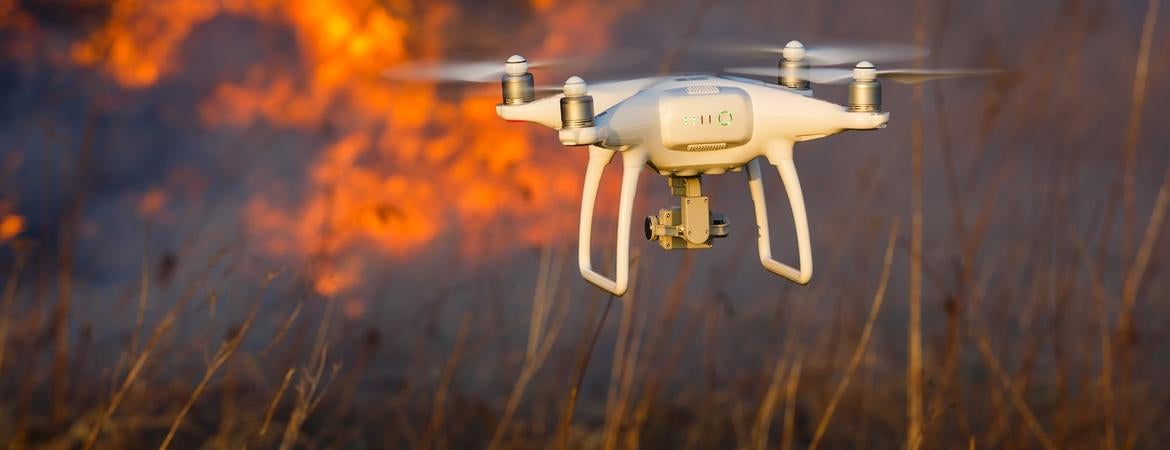
October 11, 2019
Wildfires
For fast access to experts, email news@ucr.edu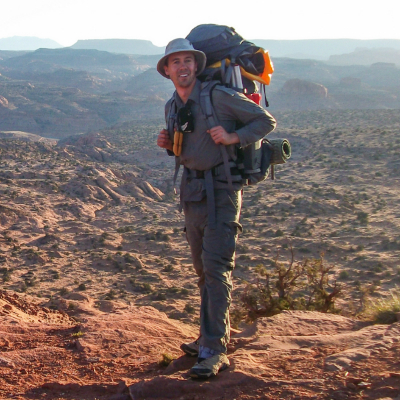 Nicolas Barth, assistant professor of geology
Nicolas Barth, assistant professor of geology
Barth’s research interests span many aspects of geology, though his main research endeavors to improve understandings of active faults and the evolution of landscapes. Barth can speak to the landscape response after a fire, slides and debris flows, as well as mudflows following fires.
Contact: nic.barth@ucr.edu
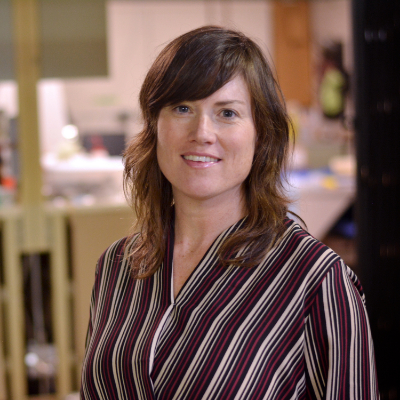 Kelley Barsanti, assistant professor of chemical and environmental engineering
Kelley Barsanti, assistant professor of chemical and environmental engineering
Barsanti’s research focuses on the development of mechanistic models for the prediction of atmospheric particulate matter, or aerosols. With regard to wildfires, Barsanti’s work involves modeling atmospheric particulate matter, especially from biomass burning, and how smoke forms and spreads from wildfires.
Contact: kelley.barsanti@ucr.edu
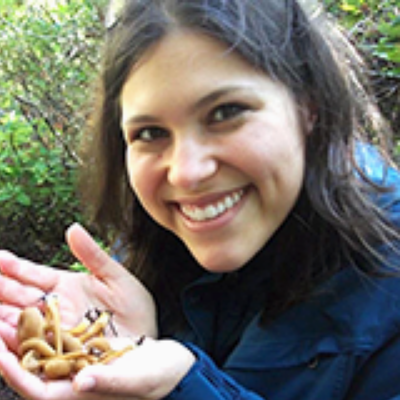 Sydney Glassman, assistant professor of microbiology and plant pathology
Sydney Glassman, assistant professor of microbiology and plant pathology
Glassman’s research focuses on understanding patterns and processes governing microbial diversity, and their ecosystem functions such as terrestrial symbioses and decomposition. Her expertise includes understanding the role of soil fungi and bacteria in ecosystem regeneration after wildfires, and the role of microbial community complexity and fungal-bacterial interactions in litter decomposition.
Contact: sydney.glassman@ucr.edu
Loralie Larios, Assistant professor and Plant Ecologist in the Botany Department
Loralee is an expert on chaparral landscapes and is currently collaborating with the US forest service to find ways to restore chaparral plant communities after fires, Chaparral fires are the kind we generally have in Southern California unless the wildfires are in the higher elevations of the mountains.
Contact: sydney.glassman@ucr.edu
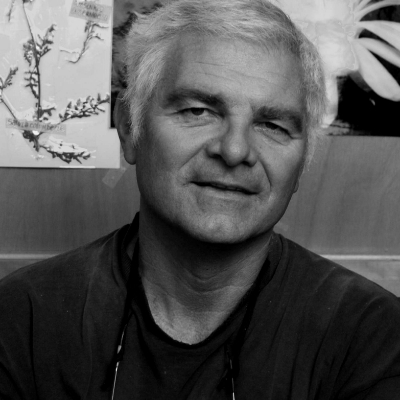 Richard Minnich, professor of geography
Richard Minnich, professor of geography
Minnich’s research examines fire ecology in Southern California, Baja California, and temperate Mexico. He also examines the influence of exotic plant invasions and climate change on wildfires, problems associated with fire suppression, the impact of dry weather and drought on wildfires, and the contribution of air pollution to wildfires. Minnich’s expertise can speak to potential solutions for addressing wildfires as well as California wildflowers.
Contact: richard.minnich@ucr.edu
Princevac’s research focuses on fundamental and applied fluid mechanics research — in particular, the application of fundamental turbulence concepts to studies in environmental flows. With regard to wildfires, Princevac can speak to wildfire behavior. His research on fire physics includes characterizing the interaction between lines of wildfires, emission of particles from wildfires, and investigation of the mechanisms that lead to the formation of dense “super fogs” when forest fires are smoldering.
Contact: marko.princevac@ucr.edu
Benjamin Tabibian, assistant clinical professor of health sciences
Tabibian’s work concerns critical care and lung diseases. He can speak to what happens in the body, at the cellular level, when we breathe in smoke from wildfires. He can also address: What are the short- and long-term effects of such inhalation? What steps can be taken to mitigate the effects of such inhalation? What kind of increased risk from wildfire smoke do patients with chronic pulmonary conditions such as lung fibrosis, COPD, and asthma face?
Contact: benjamin.tabibian@ucr.edu
Marko Spasojevic, assistant professor of biology
Spasojevic is a plant ecologist who works to understand how plant communities respond to and recover from wildfires. He uses a combination of field research, measurements of plant functional traits, remote sensing, and statistical models to ask questions related to wildfires in forests, chaparral, and grasslands.
Contact: marko.spasojevic@ucr.edu
Akula Venkatram, professor of mechanical engineering
Professor Venkatram's expertise relates to estimating the impact of wildfire emissions on air quality. Has developed models to predict the formation of dense fogs associated with water vapor emitted from smoldering fires. Currently, Venkatram is involved in creating maps of ground-level concentrations of pollutants emitted by wildfires using a system of monitors and satellite images.
Contact: akula.venkatram@ucr.edu
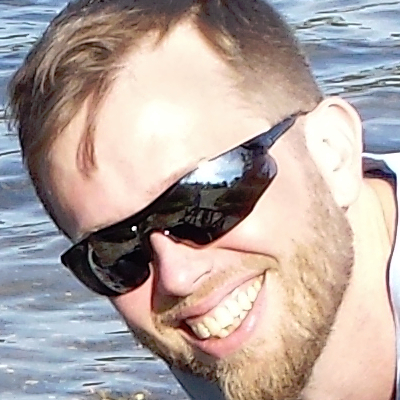 Andrew Grey, assistant professor of watershed hydrology
Andrew Grey, assistant professor of watershed hydrology
Head of a Hydrology and Earth Surface Processes research group at UCR, Grey's work examines how climatic patterns, human activities, and natural disturbances interact to influence the transport of water and water borne materials. Grey can speak to debris flows, which are more likely after a wildfire.
Contact: andrew.gray@ucr.edu
 Ahmed Eldawy, assistant professor of computer science and engineering
Ahmed Eldawy, assistant professor of computer science and engineering
Eldawy’s expertise on big data and spatial data processing helped produce WildfireDB, an open-source dataset which helps predict the spread of wildfires. The dataset can be used to simulate the spread of wildfires to help firefighters plan emergency response and conduct evacuation. It can also help simulate how fires might spread in the near future under the effects of deforestation and climate change, and aid risk assessment and planning of new infrastructure development.
Contact: eldawy@ucr.edu
